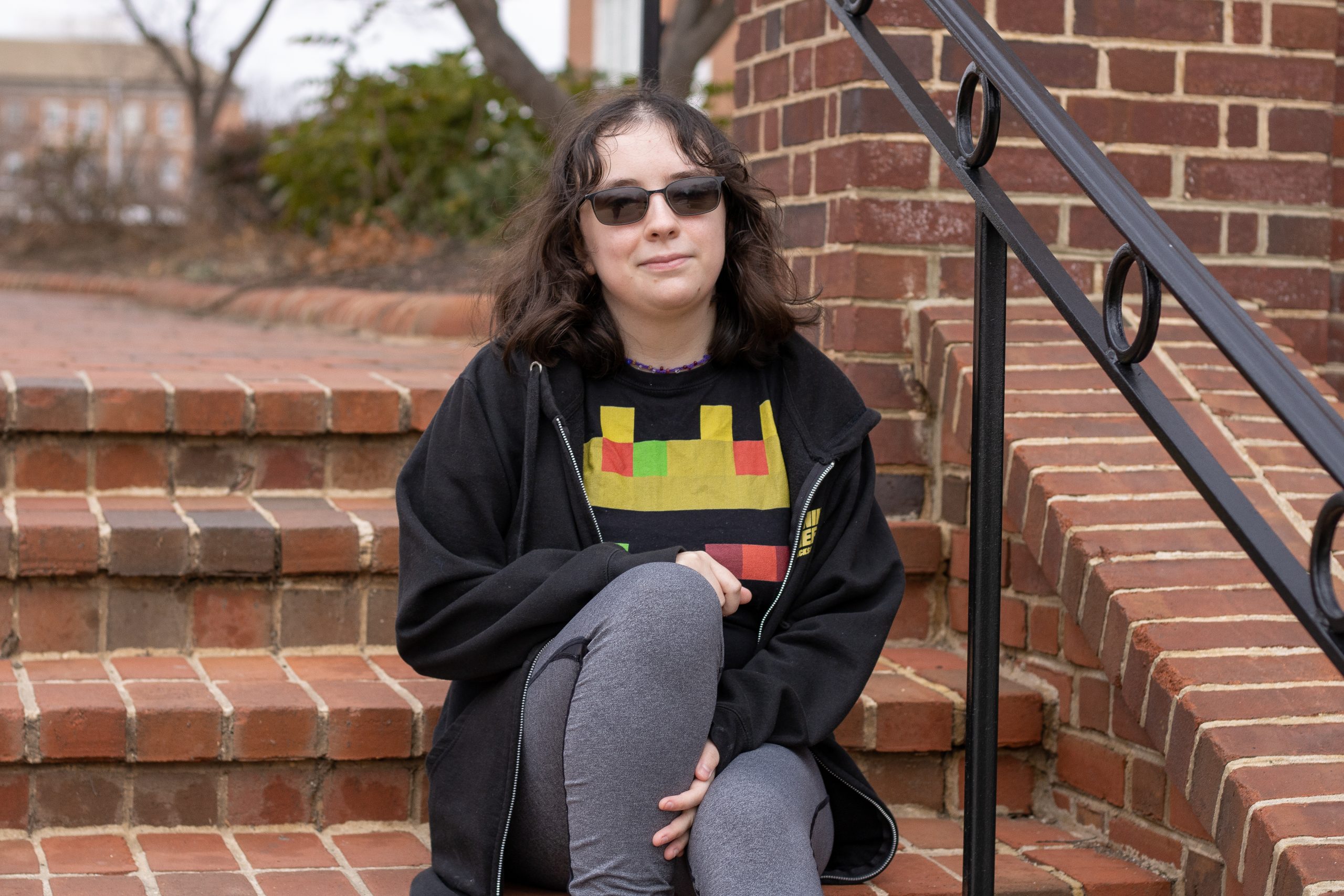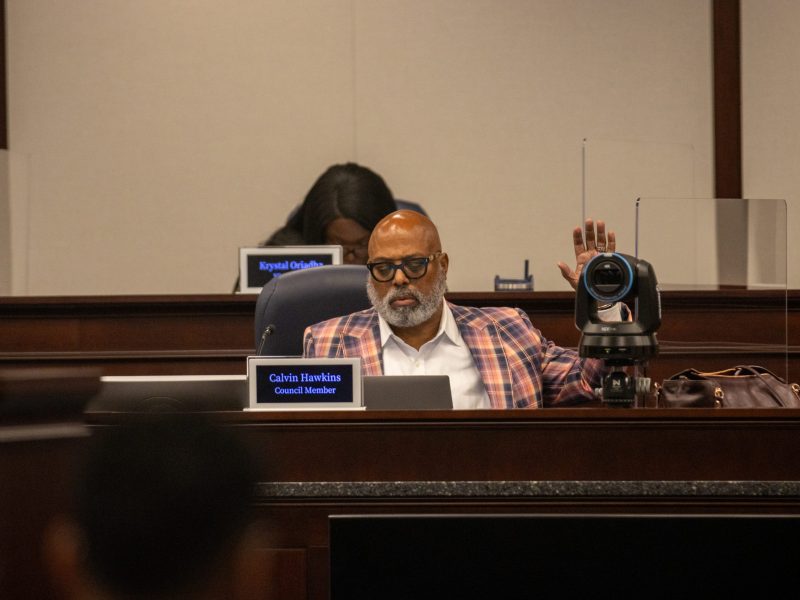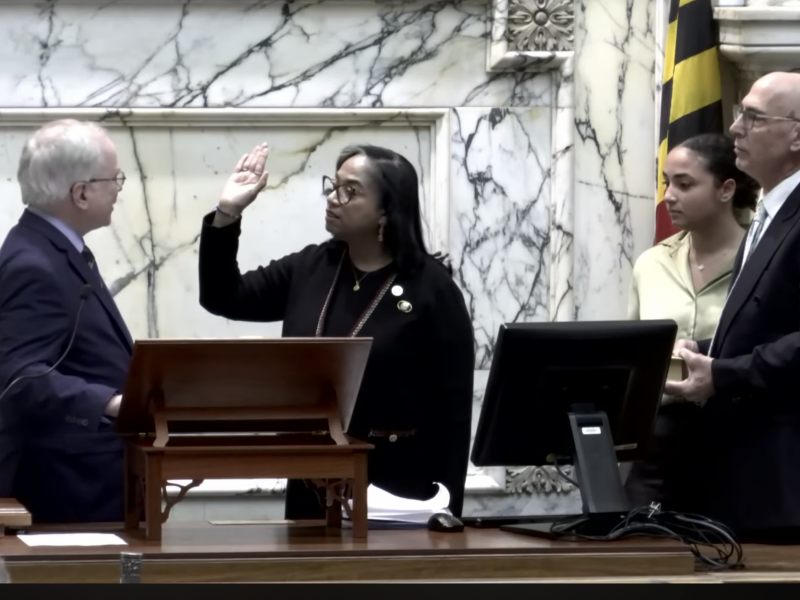Members of the asexual community at the University of Maryland want people to understand more about their identity.
For one, graduate student Janel Niska said she wishes more people knew asexuality exists.
“And I wish they knew that it was OK,” the mechanical engineering major said.
Asexual refers to people who do not experience sexual attraction.
Though estimates are limited, the most widely cited figure according to the Asexual Visibility and Education Network the indicates that asexual people account for about 1 percent of the population. The Williams Institute estimated 1.7 percent of the sexual minority population as of 2019 identified as asexual.
The asexuality spectrum spans from asexual people who never have sex to those who often have sex, and everything in between. This includes asexual people who do not enngage in any sexual activity, like sex-averse and sex-repulsed asexuals, and sex-favorable asexuals who enjoy having sex for any number of reasons but don’t feel sexual attraction. Sex-neutral asexuals are indifferent about sex. While they don’t feel sexual attraction, sex itself is neither overwhelmingly positive nor negative.
“In that same vein, aromantic people do not experience romantic attraction,” senior Sara Riso said. “That can vary in levels in the same way that asexuality does.”

Senior Danae Rupp is sex-favorable asexual and grayromantic, meaning they only feel romantic attraction in certain situations. They are also pansexual.
“But I just say queer because it’s easier,” Rupp said.
Riso is sex-averse asexual. They are also biromantic, meaning they feel romantic attraction to people of multiple genders.
“I feel like every time I come out to someone, I have to give them a vocabulary lesson,” Riso, a linguistics major, said. “I have to be a walking dictionary.”
Having a place where Riso can talk openly about their sexuality without worrying about what others do and don’t know about the identity is why they joined Ace Space.
The discussion group is a place University of Maryland students on the asexual and aromantic spectrums can share experiences and get to know the university’s ace community. This year, it’s facilitated by Riso and Rupp.
For freshman Heather Cragg, the group helps with feelings of exclusion.
“Often, you do feel left out because you’re not on the same page with being sexually active like other college students are,” the psychology major said.
The hookup culture prevalent on college campuses can affect multiple kinds of relationships, Cragg said. During her first year at this university, she experienced many platonic relationships where romantic interest eventually blossomed.
“It drives me away from trying to make any kind of relationship,” she said. For Rupp, hookup culture is a benefit. “There’s more room to decide what level of commitment you want,” they said.
While Riso and Niska didn’t have personal experience with hookup culture, they both found their pursuit of romantic relationships affected by their asexuality.
“[Dating] doesn’t feel worth it.” Riso said. “I don’t want to go into a potentially romantic situation knowing that I may have to give the other person a TED talk about my sexuality.”
For Niska, sex was a common conversation with her last partner, who was more sexual than her.
“It always led to ‘well, I can’t help you with that,’ and him saying, ‘OK, well I guess then I just have to deal with it.’”
The eight year relationship ended after her partner cheated when she moved to Maryland.
“To say ‘because I’m ace it was my fault,’ is untrue,” she said. “What happened is he made a choice.”
Coming from the “homogeneous” midwest, Niska said the university campus feels more accepting.
“Seeing how absolutely vocal everyone is about the LGBT community and what it means to them and how it’s important to respect people is very refreshing.”
Riso said the community on campus is overall neutral about asexuality. If they’re talking about it, it’s usually because someone noticed their pride pin and is already somewhat familiar with the sexuality.
“People generally don’t totally understand what it is, but they aren’t weird about it. They just haven’t totally wrapped their brains around it,” Riso said.



